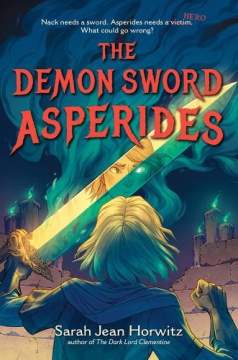What is a “Coming of Age” novel? The term has been applied to books ranging from Little Women to A Clockwork Orange!
 Still, we all know what the category is supposed to mean. It’s for books in which a young character, over time, undergoes experiences or grapples with personal or social conflicts and grows in the process. But take out the word “young” and you have the main character of most novels. The one with the most potential for change or growth.
Still, we all know what the category is supposed to mean. It’s for books in which a young character, over time, undergoes experiences or grapples with personal or social conflicts and grows in the process. But take out the word “young” and you have the main character of most novels. The one with the most potential for change or growth.
“Coming-of-age” sets an unfortunate us-and-them tone. It suggests that we adults, having put away childish things, can observe the young from a safe, settled, and wise distance. We forget that the young are us. Not just who we used to be, but part of who we are now. We may then miss or dismiss some great stories we need to know, perhaps even some heroes.
A successful novel only needs to be to be an engaging story. But a hopeful thing takes place when we identify with the novel’s main character. We get practice in empathy then, and that can change lives. What if that main character is a kind of outsider whom we might have avoided or made fun of in our daily life? Now in the novel we see him, not as a “kind” but as an individual, and we realize just what he or she is up against, what the stakes are.
Mark Haddon’s brilliant novel, The Curious Incident of the Dog in the Night-Time created great sympathy and understanding for people with autism. Since then we have seen a number of popular young adult and middle-grade novels with autistic heroes. These include Siobahn Dowd’s The London Eye Mystery, Francisco X. Stork’s Marcelo in the Real World, and Katherine Erskine’s
Katherine Erskine’s  Mockingbird.
Mockingbird. 
 Their main characters have Asperger’s and persevere in complicated quests.
Their main characters have Asperger’s and persevere in complicated quests.
A similar thing has happened with Attention Deficit Hyperactivity Disorder and dyslexia. Seeing the world from the point-of-view of Jack Gantos’s off-the-wall Joey Pigza was a revelation to readers. Then came the poignantly humorous series about dyslexic Hank Zipzer by Henry Winkler and Lin Oliver
Seeing the world from the point-of-view of Jack Gantos’s off-the-wall Joey Pigza was a revelation to readers. Then came the poignantly humorous series about dyslexic Hank Zipzer by Henry Winkler and Lin Oliver  (“The Fonz” is himself dyslexic, not diagnosed until adulthood). It’s his dyslexia and ADHD that get Percy, the main character of the wildly popular Percy Jackson and the Olympians
(“The Fonz” is himself dyslexic, not diagnosed until adulthood). It’s his dyslexia and ADHD that get Percy, the main character of the wildly popular Percy Jackson and the Olympians  series, in so much trouble at school. But these turn out to be abilities in disguise. They’re actually assets in his true role as a demi-god. Imagine the recognition and relief with which a dyslexic or ADHD student reads these books. But his classmates are reading them too. Suddenly their fellow-students’ actions may make perfect sense to them, so that they can laugh with and for them, rather than at them.
series, in so much trouble at school. But these turn out to be abilities in disguise. They’re actually assets in his true role as a demi-god. Imagine the recognition and relief with which a dyslexic or ADHD student reads these books. But his classmates are reading them too. Suddenly their fellow-students’ actions may make perfect sense to them, so that they can laugh with and for them, rather than at them.
Doesn’t this increased empathy argue for having stories about every possible way of being human? And against the current impulse toward censorship or restriction of children’s access to such books?
We all have some sense of being an outsider, regardless of our background or circumstances. At around age eight or nine, we realize that we have both an inner and an outer life. We soon discover that who we feel ourselves to be cannot always be reconciled with and who others expect, even command, us to be.
Novels that focus on a young person’s struggle between those worlds remind us of our own continuing struggle to reconcile them, regardless of age. Something more important than “coming of age” or even “growing up” goes on in them. The main characters in these stories hold to something in their inner life–a dream, a conviction, a quest, a desire, a quality of self-that they believe to be essential to them.
It’s so essential that they can’t afford to give it up or give in, no matter how much pressure or ridicule they may experience from others. Sometimes very powerful others claim to know better for them or at least know better about how the world works. So they’re is tempted and discouraged along the way, and they may sustain great losses. But they gradually find the courage to be true to themselves and to bring that essential something forward with them.
 Think of ten-year-old runaway orphan Bud Caldwell in Christopher Paul Curtis’s Depression era novel Bud, Not Buddy who survives neglect and abuse and hunger by clinging to three things: 1) his s dead mother’s love and assurance that he is Bud, not Buddy 2) a beat-up cardboard suitcase containing certain old playbills and rocks he believes are clues to the identity and whereabouts of his father and 3) a wry compendium he has created from his young experiences called, “Bud Caldwell’s Rules and Things for Having a Funner Life and Making A Better Liar Out of Yourself.”
Think of ten-year-old runaway orphan Bud Caldwell in Christopher Paul Curtis’s Depression era novel Bud, Not Buddy who survives neglect and abuse and hunger by clinging to three things: 1) his s dead mother’s love and assurance that he is Bud, not Buddy 2) a beat-up cardboard suitcase containing certain old playbills and rocks he believes are clues to the identity and whereabouts of his father and 3) a wry compendium he has created from his young experiences called, “Bud Caldwell’s Rules and Things for Having a Funner Life and Making A Better Liar Out of Yourself.”
 Or magical nine-year-old Thomas, in Guus Kuijer’s The Book of Everything, who “sees things others don’t see.” Tropical fish in the canals. His father regards much of what Thomas says and does as the workings of the devil. He tries to beat it out of his son with a spoon. When asked what he wants to be when he grows up, Thomas says. “ I want to be Happy.” His father scoffs, but a neighbor, widely regarded as a witch, thinks it’s a very good idea. She gives him books, music, companionship, and a powerful thought. That to be happy it is first necessary not to be afraid.
Or magical nine-year-old Thomas, in Guus Kuijer’s The Book of Everything, who “sees things others don’t see.” Tropical fish in the canals. His father regards much of what Thomas says and does as the workings of the devil. He tries to beat it out of his son with a spoon. When asked what he wants to be when he grows up, Thomas says. “ I want to be Happy.” His father scoffs, but a neighbor, widely regarded as a witch, thinks it’s a very good idea. She gives him books, music, companionship, and a powerful thought. That to be happy it is first necessary not to be afraid.
Remembering that thought, Thomas stands up to his father and inspires his sister and mother to do the same. Everyone is happier as a result, except for the now small, confused, and fear-driven father. Even Thomas’s friend Jesus doesn’t hold out much hope for change in him.
There is no guarantee that characters in these books will prevail, however much they may deserve to. Lizzie Bright, the straight-thinking free spirit in Gary Schmidt’s Lizzie Bright and the Buckminster Boy, liberates her friend Turner ’s thoughts and spirit from his rigid upbringing. But she ends up being banished by the greedy and bigoted white townspeople to an institution for the feeble-minded. She dies there before Turner can rescue her.
Much is at stake in novels like this, and not just for the characters. We pull hard for them. We long to hope that the world can be wise enough to bend to their courage and make room for them. And for us.
For that story, any category may be too small.



 Tell us a little bit about your latest book, The Demon Sword Asperides.
Tell us a little bit about your latest book, The Demon Sword Asperides. One of the things I love the most about your books is your world building. Do you have any tips for writers who are trying to create their own unique worlds?
One of the things I love the most about your books is your world building. Do you have any tips for writers who are trying to create their own unique worlds?





